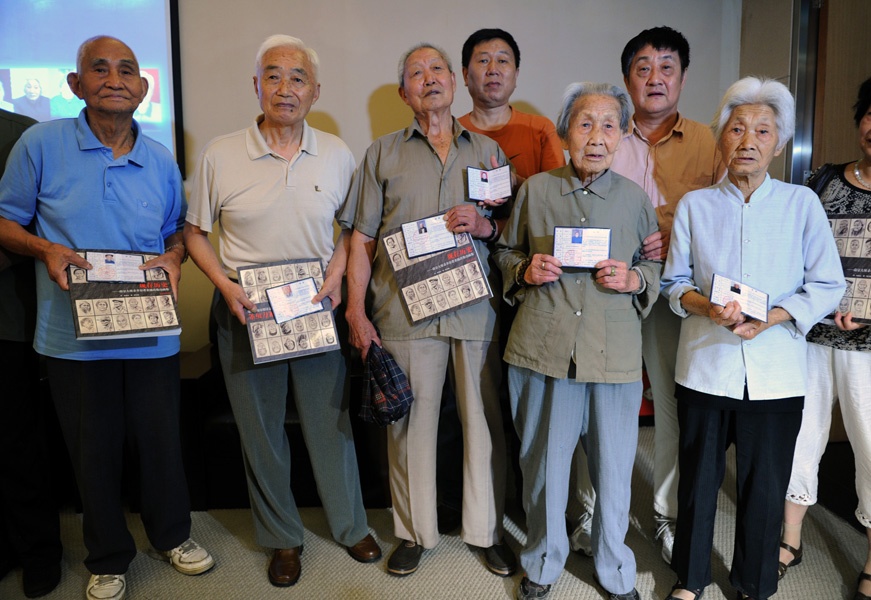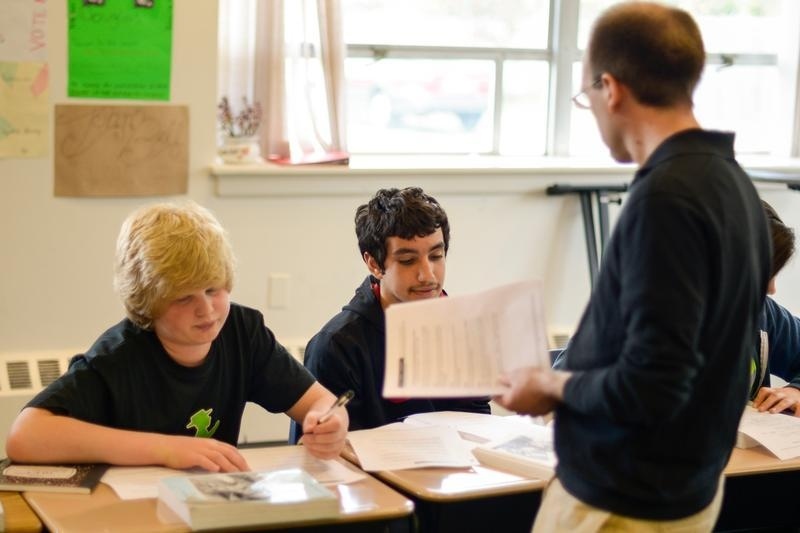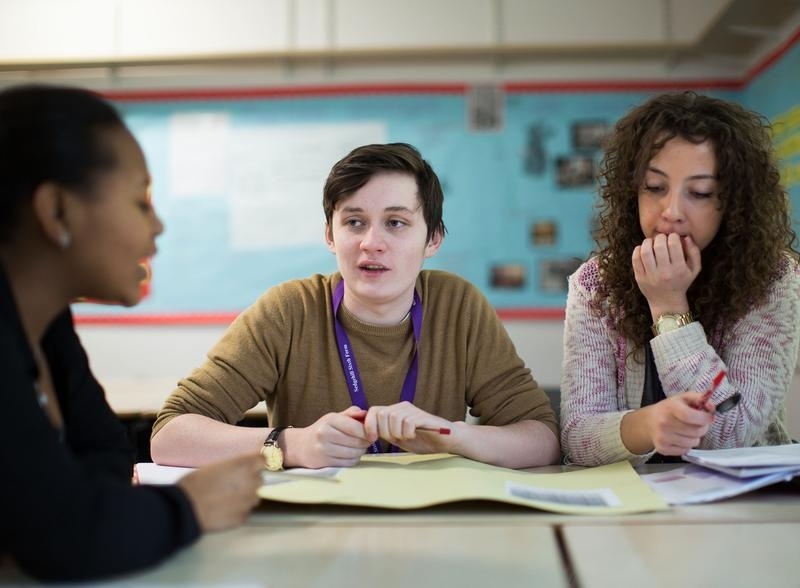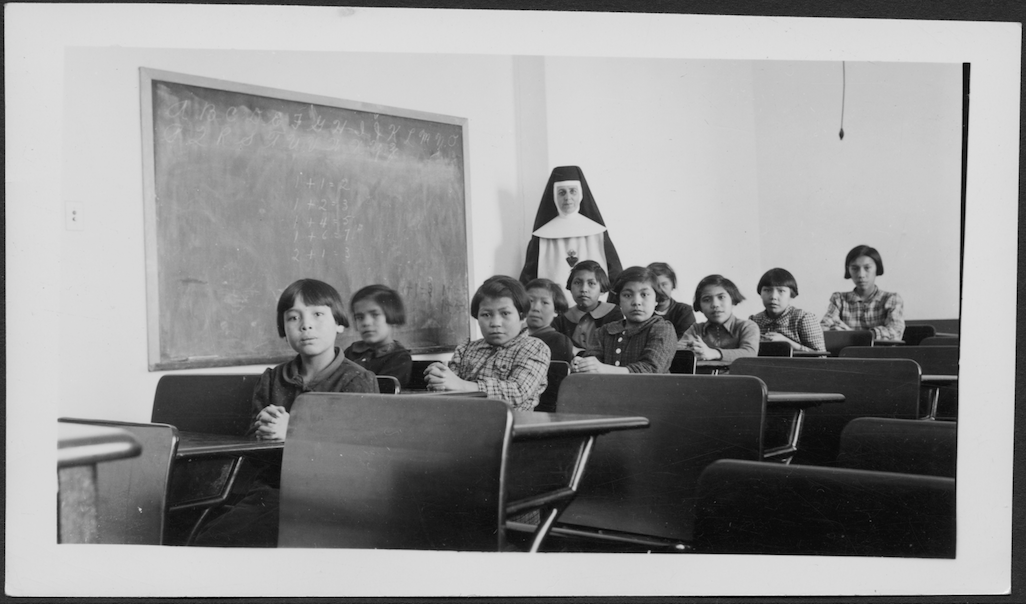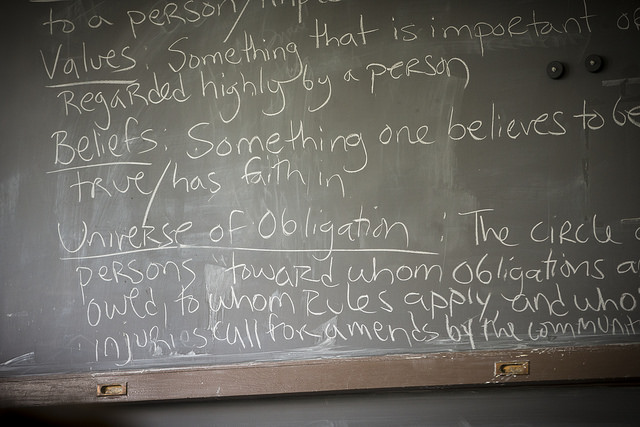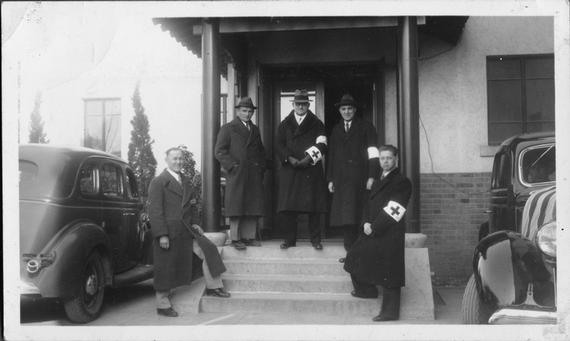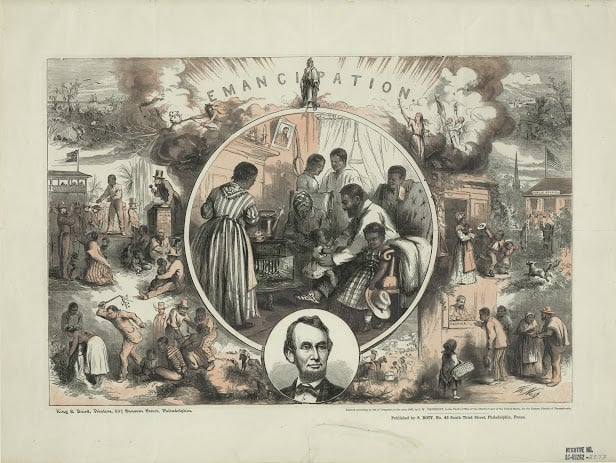Life was pretty happy and full. Now on December 13, there came change that turned our world upside down. - Mr. Chen Deshou, a survivor of the Nanjing Atrocities
December 13th marks the 78th anniversary of the Nanjing Atrocities, when the lives of thousands of women, men, and children were turned upside down. This assault by the Japanese Imperial Army took place from December 13, 1937, through the end of March 1938. During this time soldiers ran riot in the captured Chinese capital, unleashing a spree of violence, murder, and rape on the population.
Read More
Topics:
Facing History Resources,
Genocide/Collective Violence,
The Nanjing Atrocities
This is not the blog post I wanted to write. How do you respond when lives have been lost? Paris, Chicago, San Bernardino. And what about the lives lost which don’t make national news?
Walking into the metro station earlier this week my husband and I started talking with one of the station workers. He was holding his breath as he walked upstairs with us – hoping not to find the dead body of a homeless man, as had happened the day before.
Are we, like this station worker, holding our breath to not have a dead body to deal with today?
Read More
Topics:
Classrooms,
Students,
Facing History Resources,
Facing History and Ourselves
The roots of violence and injustice are complex and mired in societal and political specifics around the globe.
Facing History and Ourselves teaches that rigorous study of history can help us make choices for a better future. Each history has its own lessons, but all of them give us a platform from which to ask fundamental questions, in communities and in schools: how did identity impact the choices people made in the past? How do we, today, engage with each other across difference?
Read More
Topics:
Facing History Resources,
Race and Membership,
Facing History and Ourselves,
Community Conversations,
Bryan Stevenson
In a Facing History and Ourselves classroom, asking students to question and think critically is challenging every day, but especially when we read headlines about violence in communities close to home. During the week leading up to Thanksgiving, a video showing the 2014 murder of 17-year-old Laquan McDonald by Chicago police officer Jason Van Dyke was released on the same day that Mr. Van Dyke was charged with first-degree murder. Facing History offers essential questions to consider and strategies for helping students process the myriad thoughts, feelings, and opinions they are experiencing.
Read More
Topics:
Teaching Strategies,
Facing History Resources,
Facing History and Ourselves,
Teaching Resources
Yesterday we released our new Canadian resource, Stolen Lives: The Indigenous Peoples of Canada and the Indian Residential Schools. This new resource brings educators primary sources and first-person accounts about a painful period in Canadian history, when about 150,000 Indigenous children were forcibly taken from their families and stripped of their language, culture, and traditions.
Stolen Lives arrives as Canada’s Truth and Reconciliation Commission, after hearing thousands of survivor testimonies, offers a 94-recommendation “Action Plan.” Its June 2015 call said reconciliation—especially through education—is urgent.
Read More
Topics:
Facing History Resources,
Toronto,
Canada,
Residential Schools,
Canadian History
The killing of Cecil the Lion on July 1st attracted both heavy news coverage and a flurry of responses on social media. An interesting thread emerged from these responses: questions about how people can become so outraged over the death of a lion on the other side of the world, when there are larger scale, or more local, stories of individuals and groups of people suffering unspeakable violence and injustice. The underlying theme that unites many of these confrontations is “Which story about tragedy or injustice is more worthy of our attention?”
Read More
Topics:
Classrooms,
Teaching Strategies,
Choosing to Participate,
Students,
Facing History Resources,
Teaching,
News,
Universe of Obligation
As a teacher, I am constantly thinking of new ways to engage my students.
Before I started teaching my students a unit about the Holocaust this year, I thought a lot about how I could get them to think, process, and reflect meaningfully and critically about this history, and also inspire them to act in a manner that influences the world for good.
Read More
Topics:
Art,
Books,
Choosing to Participate,
Facing History Resources,
Teaching,
Holocaust,
Teaching Resources,
Survivor Testimony,
History,
Facing Technology,
Chicago
Acts of moral courage are not common, they are exceptional. People actively create opportunities to rescue or choose to help others. It can happen in a blink of an eye or after long deliberation, but these moments are not accidental.
Read More
Topics:
Rescue,
Facing History Resources,
Teaching,
Genocide/Collective Violence,
Teaching Resources,
History
About two years ago, when I began reading draft chapters of Facing History’s new publication on the Reconstruction era in American history, I got to thinking back to how I learned about this period in high school in 1959 and in college, and also how I taught it to my students while teaching high school several years later in 1965.
In both my high school class as student, and later my high school classes as a teacher, I used the same textbook, David Saville Muzzey’s 1937 A History of Our Country, which for decades was the most widely used high school text on American history. Curious about what I learned and how I taught it, I dug out my well-worn copy and looked at how Muzzey wrote about Reconstruction.
Read More
Topics:
Classrooms,
Books,
Teaching Strategies,
Democracy,
Reconstruction,
Facing History Resources,
Teaching,
Teaching Resources,
History,
American History,
Civil War
I am not Armenian.
I did not grow up learning about the Armenian Genocide.
I attended schools in two of the best public school districts in Southern California and achieved not just an undergraduate degree, but two master's degrees. I had been teaching for several years before I ever learned about the Armenian Genocide.
Read More
Topics:
Armenian Genocide,
Facing History Resources,
Genocide/Collective Violence,
Teaching Resources,
Video,
History

